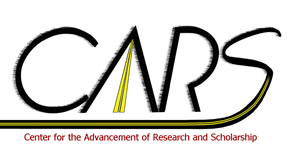Event Title
Tax Compliance and Spending: A Lab Experiment
Location
Hart 114
Start Time
12-5-2016 11:25 AM
End Time
12-5-2016 11:40 AM
Description
All tax systems result in tax evasion by some members of the economy. In order to increase compliance and thereby increase revenues to supply benefits the use of positive inducements with tax laws have been tried. The positive incentives must be coordinated with the tax filing/paying process to induce the desired behavior: filing and paying the taxes owed. The efficacy of these types of policies can be tested in the lab more efficiently and for lower costs than implementing policies and testing them after the fact. This research tests whether voting for various public goods are a positive inducement to filing taxes and paying the amount owed.
The results will provide valuable information for policy makers. If a link exists between the existence of a voting scheme built into the tax filing process it will show up as a statistically significant factor in a multiple linear regression model. Using software from previous research for the IRS, new treatments will be implemented to perform a multiple period experiment. A very large dataset will be recorded by the experiment software capturing and controlling for the dominant influences on the tax filer’s decision.
Tax Compliance and Spending: A Lab Experiment
Hart 114
All tax systems result in tax evasion by some members of the economy. In order to increase compliance and thereby increase revenues to supply benefits the use of positive inducements with tax laws have been tried. The positive incentives must be coordinated with the tax filing/paying process to induce the desired behavior: filing and paying the taxes owed. The efficacy of these types of policies can be tested in the lab more efficiently and for lower costs than implementing policies and testing them after the fact. This research tests whether voting for various public goods are a positive inducement to filing taxes and paying the amount owed.
The results will provide valuable information for policy makers. If a link exists between the existence of a voting scheme built into the tax filing process it will show up as a statistically significant factor in a multiple linear regression model. Using software from previous research for the IRS, new treatments will be implemented to perform a multiple period experiment. A very large dataset will be recorded by the experiment software capturing and controlling for the dominant influences on the tax filer’s decision.

Comments
Moderator: Hadidja Nyiransekuye